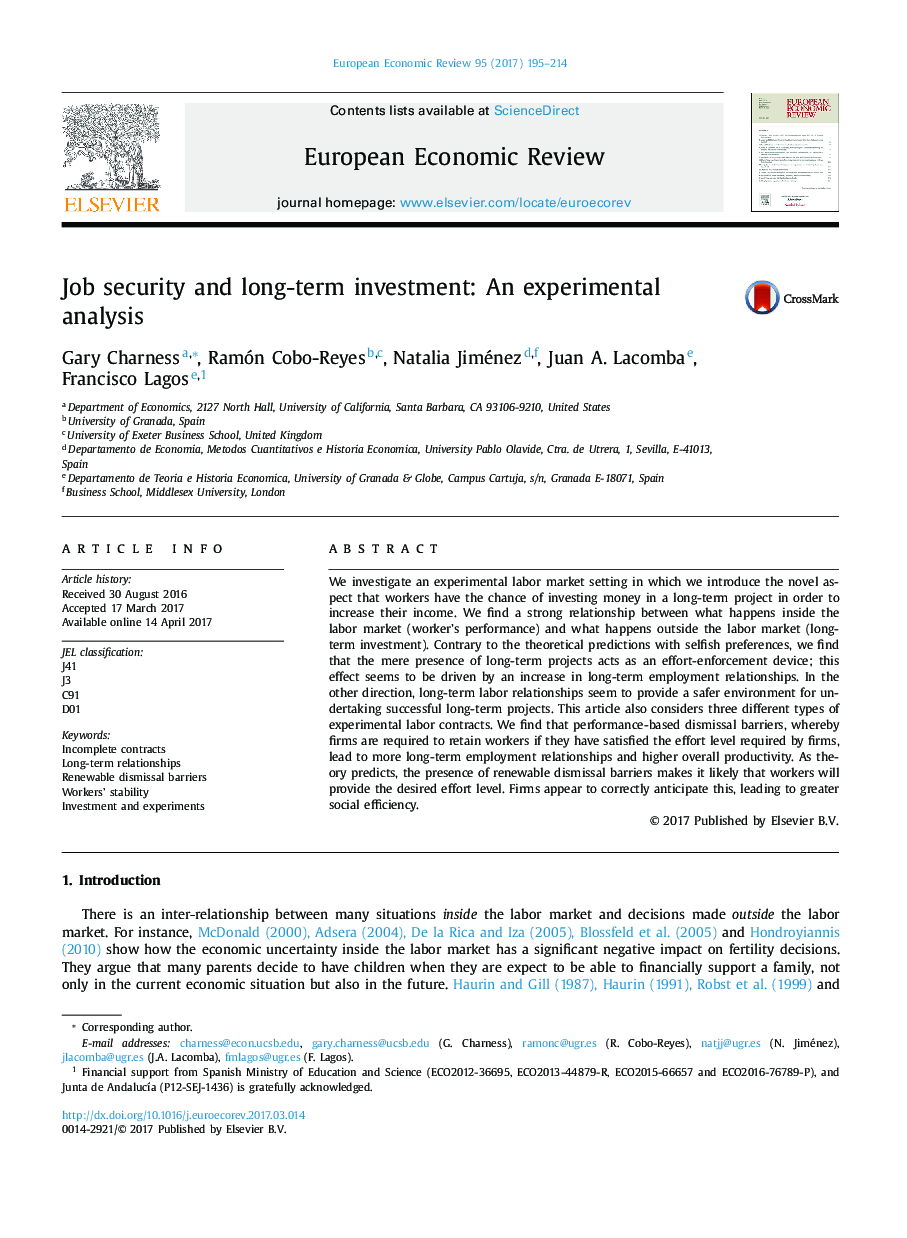| Article ID | Journal | Published Year | Pages | File Type |
|---|---|---|---|---|
| 5066345 | European Economic Review | 2017 | 20 Pages |
We investigate an experimental labor market setting in which we introduce the novel aspect that workers have the chance of investing money in a long-term project in order to increase their income. We find a strong relationship between what happens inside the labor market (worker's performance) and what happens outside the labor market (long-term investment). Contrary to the theoretical predictions with selfish preferences, we find that the mere presence of long-term projects acts as an effort-enforcement device; this effect seems to be driven by an increase in long-term employment relationships. In the other direction, long-term labor relationships seem to provide a safer environment for undertaking successful long-term projects. This article also considers three different types of experimental labor contracts. We find that performance-based dismissal barriers, whereby firms are required to retain workers if they have satisfied the effort level required by firms, lead to more long-term employment relationships and higher overall productivity. As theory predicts, the presence of renewable dismissal barriers makes it likely that workers will provide the desired effort level. Firms appear to correctly anticipate this, leading to greater social efficiency.
